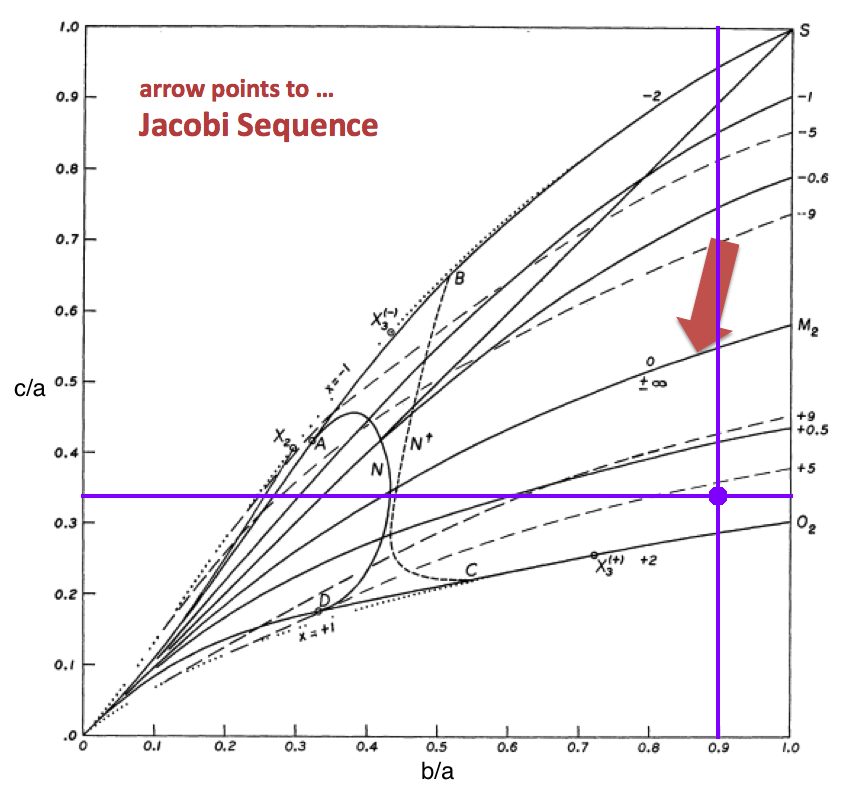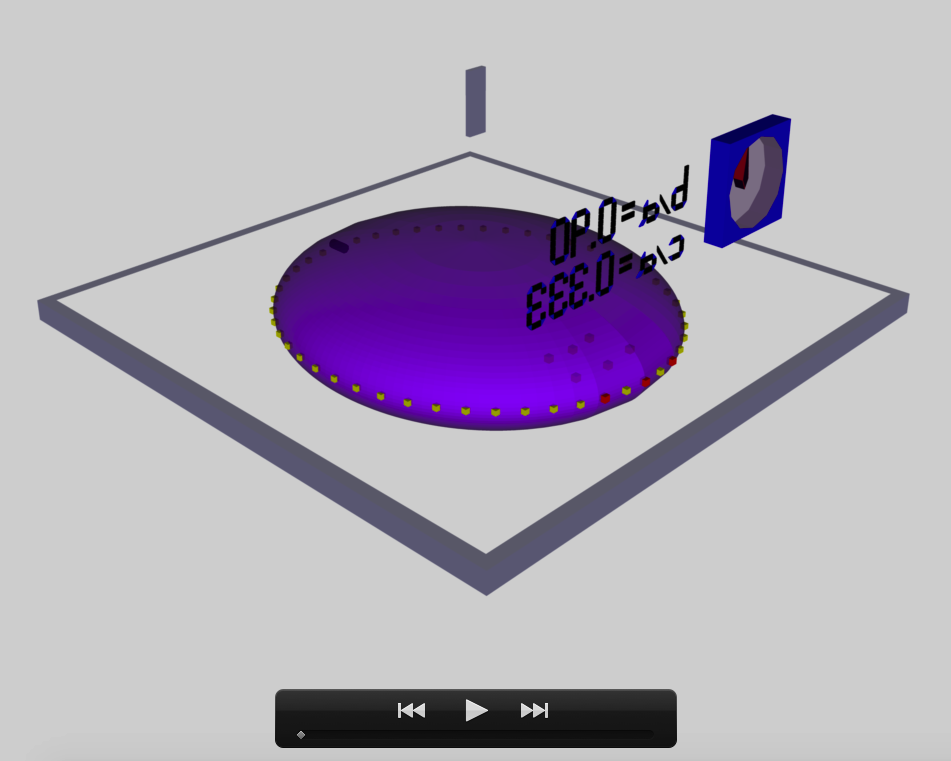User:Tohline/Appendix/Ramblings/RiemannB90C333
Another S-type Example b90c333
This chapter is an extension of the chapter we have titled, "Riemann Meets COLLADA & Oculus Rift S." In that chapter we used as our first example of a Riemann S-type ellipsoid the model with parameters, (b/a, c/a) = (0.41, 0.385). Here we construct a model with parameters, (b/a, c/a) = (0.90, 0.333). Other closely related chapters are listed below under the heading, "See Also".

|
|---|
| | Tiled Menu | Tables of Content | Banner Video | Tohline Home Page | |
Key Physical Parameters
The model that we have chosen to use in our second successful construction of a COLLADA-based, 3D and interactive animation has the following properties; this model has been selected from Table 2 of our accompanying discussion of Riemann S-type ellipsoids:
|
|
<math>~\frac{b}{a} = 0.90</math> |
|
||||
|
<math>~\frac{c}{a} = 0.333</math> |
||||||
|
Direct |
|
Adjoint |
||||
|
<math>~\Omega_\mathrm{EFE} = 0.447158</math> |
<math>~\Omega_\mathrm{EFE} = 0.221411</math> |
|||||
|
<math>~\lambda_\mathrm{EFE} = - 0.221411</math> |
<math>~\lambda_\mathrm{EFE} = - 0.447158 </math> |
|||||
The subscript "EFE" on Ω and λ means that the relevant frequency is given in units that have been adopted in [EFE], that is, in units of <math>~[\pi G\rho]^{1 / 2}</math>. In Figure 1a, the solid purple circular marker (where the pair of purple lines cross) identifies the location of this model in the "c/a versus b/a" diagram that appears as Figure 2 on p. 902 of S. Chandrasekhar (1965); essentially the same diagram appears in §49 (p. 147) of [EFE].
Coding Steps
Here we begin with a working model of b74c692 and use incremental changes in the COLLADA-based code to construct a working model of b90c333.
- This pair of starting models has been copied from the successful modeling of Riemann S-type ellipsoids that have (b/a, c/a) = (0.74, 0.692)
- Inertial Frame: [KEEP] InertialB74C692aa.dae [02 May 2020]
- Rotating Frame: [KEEP] TestMulti74.dae [02 June 2020]
- FastRot75.dae
Identical to TestMulti74.dae except wall-mounted labeling has been changed to reflect new values of b/a and c/a. - FastRot76.dae
Inserted correct surface geometry of this rapidly rotating Riemann ellipsoid. This works in both visualization venues. - FastRot78.dae
All the animation elements have been inserted and debugged, but as if internal fluid motion is regrograde (clockwise). Need to flip the fluid motion so that it is prograde (counter-clockwise) even in the rotating frame of reference. - FastRot79.dae
All the animation elements have been inserted and debugged, with internal fluid correctly moving prograde (counter-clockwise) even in the rotating frame of reference. This works in both visualization venues. - FastInertial80.dae
Test.
Best b90c333 Models
The example models created for display in the Oculus Rift S are the following:
- Inertial Frame: [KEEP] FastInertial80.dae [04 June 2020]
- Rotating Frame: [KEEP] FastRot79.dae [04 June 2020]
See Also
- Discussion of Ou's Riemann-Like Ellipsoids
- Riemann Meets COLLADA & Oculus Rift S
- Virtual Reality and 3D Printing
- Success Importing Animated Scene into Oculus Rift S
- Carefully (Re)Build Riemann Type S Ellipsoids Inside Oculus Rift Environment: Example (b/a, c/a) = (0.41, 0.385)
- Other Example S-type Riemann Ellipsoids:

|
|---|
|
© 2014 - 2021 by Joel E. Tohline |

